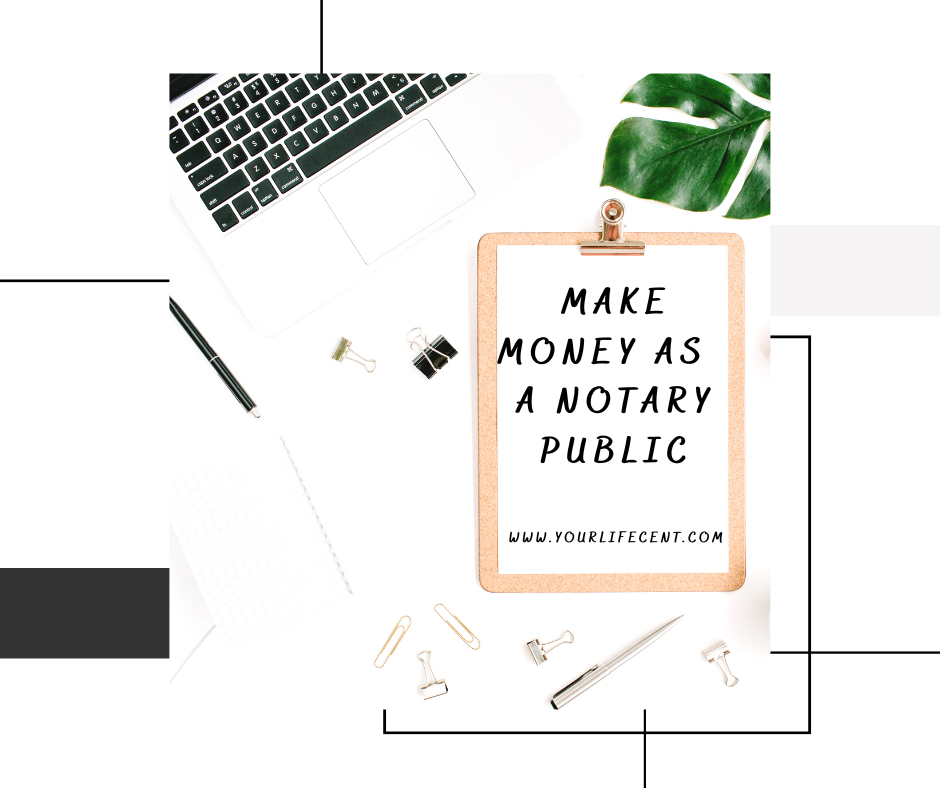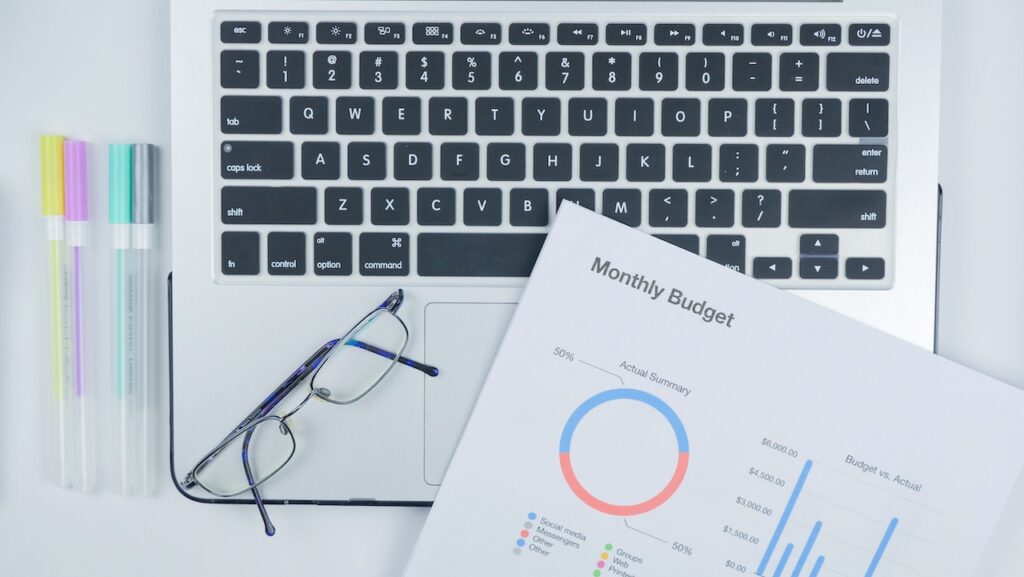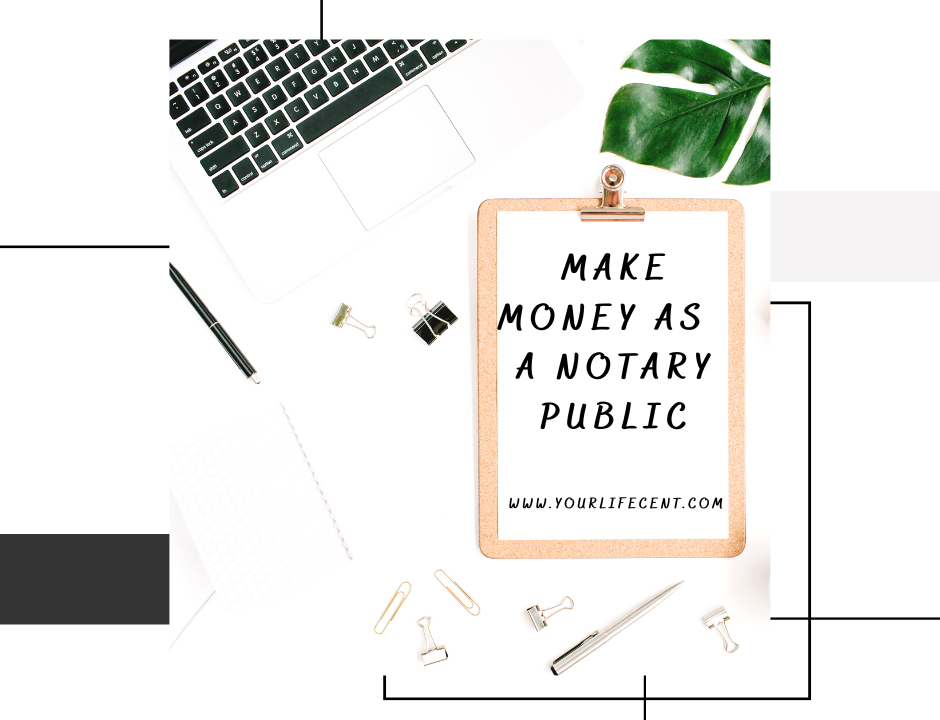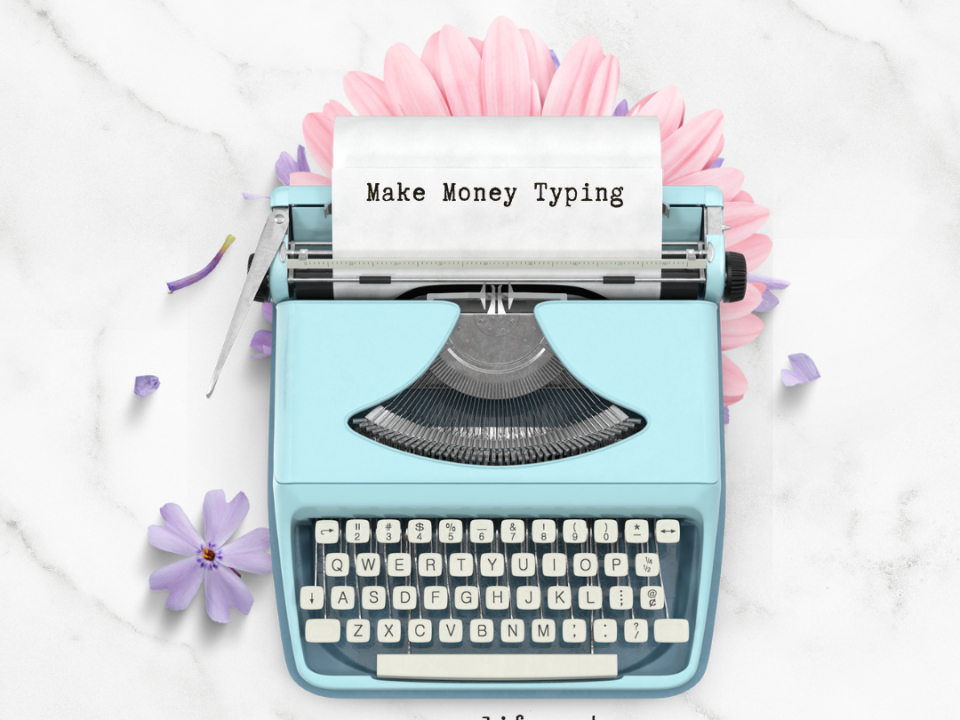
How to Make Money as a Notary Public: Here Are The Top Ways
October 12, 2022
8 Easy Money Goals to Get You Ready for the New Year
January 11, 2023Are you trying to figure out how to start a budget as a beginner that works for you? Don’t worry, I get it, and you’re not alone.
As someone who deals with budgeting and money for a living, I’ve helped other people, just like you, take control of their finances.
Budgeting can seem overwhelming and scary at first. That’s why I wanted to create this post with some helpful tips and hacks on how to budget money for beginners to help you find a budget that actually works for you.
After reading this article, you’ll have the tools you need to find the right budget that fits your lifestyle. But first, let’s talk about why budgeting is so important.
Why Is It Important to Budget?
While your first thought may be to hide your head in the sand like an ostrich when it comes to dealing with your finances, creating a budget is vital. When you create and follow a budget, you’re taking control of your finances and making them work for you.
And life can be unpredictable and messy, especially when you’re stressed about being able to save money and pay your bills!
The best thing about creating a monthly budget is that it helps you understand where your money is going. Also, budgeting helps you start making adjustments that allow you to become a saving machine instead of an ATM.
When you are intentional with your spending, you’ll be able to save money for your emergency fund, retirement, college funds, and more.
And staying on top of your finances makes it easier to reach your financial goals and helps you stay within your means instead of overextending yourself.

Budget for Beginners: Simple Tips to Take Control of Your Finances
I’m going to simplify how to make a budget and help you find one that fits your specific circumstances and needs so you can take control of your financial future and achieve all your goals. And I have a surprise for you! I’ve created a simple budgeting worksheet to help you create the perfect budget for you and your family.
Create a Budget that Fits Your Lifestyle
There is no one-size-fits-all budget, so you need to find one that fits your lifestyle. If you like to live a lavish lifestyle with lots of dinners out and expensive vacations, your budget will be very different from someone who is more frugal.
If you create a budget that allows for some flexibility, you can still enjoy some of the things you love. But you must be honest with yourself as you can’t have everything. If you have a lot of debt, you will have to make some sacrifices to pay it down.
If you follow your budget strictly, you can always add the things you love back in, but only if it fits into your budget.
You won’t want to go back to having lots of debt again once you realize how little stress you have once everything is paid off! Trust me, there is nothing like the taste of Financial Freedom!
To find the style of budget you would like to create then click here >>> { Budget Styles }

Set Realistic Savings and Budget Goals
A budget is a great way to help you achieve your financial goals. Whether you want to save for a down payment on a house or retire early, a budget can help you make that a reality.
Make sure your budget includes specific financial goals so you can track the progress you’re making each month. Having specific goals will help keep you motivated and on track.
Financial goals are important, so make sure they are included in your budget. It is also a good idea to have short-term and long-term goals. Some examples of short-term goals are saving for a vacation or a new car, while long-term goals might include saving for retirement or buying a home.
Create a goal vision board to help you stay focused on your goals. A vision board is a great way to visualize what you want to achieve, and it can help keep you motivated. This will help you stay focused on the big picture and not get discouraged along the way. To learn more about financial goals click here.
Calculate Your Net Income
Start with your monthly income to create your monthly budget.
The first thing you want to do is figure out your net income or take-home pay. If you get a regular paycheck, this will be a little easier as the amount you receive in your check is your pay after your taxes, insurance, retirement, etc.
If you’re self-employed, this may be a little trickier as you’ll need to subtract expenses. Determining your sources of income and how much money you make is one of the most important aspects of easy budgeting.
You may also have additional sources of income that provide you with extra money for bills. These sources could be:
- Part-time work or side hustles
- Royalties
- Alimony and child care income
- Rental income
- Investment income
- Money from court settlements or family trusts
Or other similar income funds to add to your budget. And don’t include things like overtime pay if it’s something you don’t receive each paycheck.
Determine Your Monthly Expenses
Next, you’ll want to determine your monthly expenses. This can be one of the scariest parts of budgeting because you’ll discover all the purchases you make on autopilot, too.
Do you buy Starbucks coffee every morning or go out to lunch at work each day instead of packing one?
You’ll have fixed expenses and flexible or fluctuating expenses. Fixed expenses include things like your mortgage, rent, utilities, credit card payments, groceries, car payments, or other loan payments.
Flexible or variable expenses like groceries, clothing, food, or entertainment will vary each month. With the bills that may fluctuate each month, I suggest you budget for the highest possible amount each month.
You also don’t want to forget the expenses that may be billed yearly, biannually, or quarterly, like car insurance, taxes, or other similar bills.
As you create your budget, if you find that your expenses are more than your income. Every little bit can add up, so review debit or credit card statements, your check registers, spreadsheets, or whatever you log expenses in.
Discretionary Expenses – Wants vs. Needs
When I budget money for beginners I cannot stress enough how important it is to identify any discretionary expenses. By discretionary, I mean determining your needs versus wants. This is especially important when trying design a budget for your particular lifestyle.
Discretionary expenses include things like eating out, entertainment, vacations, presents for birthdays or Christmas, subscriptions, etc. These expenses are some of the ones that give you some wiggle room in your monthly budget.
Other than groceries (one of the best places to save you money each month), your discretionary expenses are ones that you can cut. They aren’t things you need like electricity and water.
Subtract Your Expenses for Your Income
This part of budgeting for beginners is tough. You’re about to see how much extra money you have left after your monthly obligations and other expenses.
But relax; knowing where your money is going is vital for successful budgeting. While doing this, you’ll want to also keep your financial goals in mind.
If you have money left over, congratulations, you have more money to save! Now let’s talk about what happens if you are in the negative.
Make Cuts in Your Monthly Budget Where Necessary
If you’re in the negative, you’re going to need to reign in your spending. You’re going to really need to analyze where you can cut money. It’s more important to find extra money for savings to pay off your credit cards or save money to your emergency fund instead of Starbucks coffees or Netflix.
Needs should always come first, but there is one need you can adjust, and that’s your groceries. Find cheaper alternatives and challenge yourself to save $50 or $100 less each month. To save money on shopping you can use Ibotta app which gives you cash back when you shop.
And start cutting discretionary expenses as that is the best way to decrease how much you spend monthly. So, that means eating out less, canceling cable, and selling some items on eBay, Facebook, or elsewhere.
Don’t worry; there are many ways to reduce your expenses without making too many sacrifices. For example, you can brown-bag your lunch instead of eating out, carpool to save on gas, or turn off the lights when you’re not using them. Be willing to make some changes, and you will be able to stay within your means.
Don’t be afraid to get creative and find ways to cut back on your spending. And If you find that you are struggling to make ends meet, then you may need to find ways to make extra money.
This could mean picking up a side hustle like babysitting, dog walking, or driving for a ridesharing service like Uber. There are many ways to make extra money, so find one that fits your skills and interests.
The key is to find a way to bring in more money without adding to your expenses. There are many ways to do this, so be creative and find one that works for you.
Automate Your Monthly Savings
I love automating my monthly savings. It means I don’t have to try to remember to transfer money to savings or worry about spending the money that is allocated to it. This is the very definition of easy budgeting.
Some workplaces allow you to have money taken from your check each month and transferred into an account, so you never even know it’s missing. Also, budgeting apps like Acorns or Digit can help you transfer money to savings.
You can also set Acorns to round up your purchases and transfer that money to savings. I also love the Ramsey Every Dollar app which is simple to use and can get started for free.
Monitor and Adjust Your Budget as Necessary
Congratulations! Once you’ve set up your expenses and monthly income, you have created a budget. Now you need to review your budget regularly and adjust it as needed so you can achieve your goals and eliminate debt.
The key to successful budgeting is tracking your spending. This means recording everything you spend money on, no matter how small.
You can do this manually with a pen and paper, or you can use a budgeting app or software to help you keep track of your spending.
Final Thoughts on How to Budget Money for Beginners
Now you know the basics of budgeting for beginners. You’ll want to make sure that you are always monitoring your finances so you can save money for your emergency fund and pay down debts like credit cards.
Knowing how much money you’re saving and spending each month is the key to financial freedom. Take control of your finances before they take control of you, and be intentional with your spending for financial success.
Budgeting doesn’t have to be hard or rigid when you find one that fits your lifestyle.



